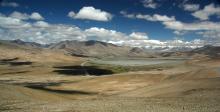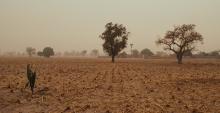Latin America is experiencing a confluence of insecurity and migration challenges that are increasingly intertwined with climate change. High levels of ethnic, gender, and socioeconomic inequality are ubiquitous, and populism and authoritarianism are gaining traction. In the Central American countries of El Salvador, Guatemala, and Honduras, in particular, chronic conflict, violence, and weak governance are key constructs undermining human security.












